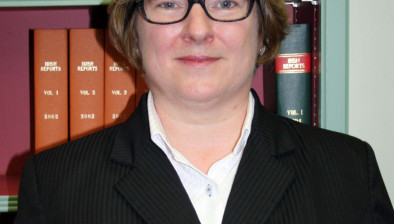Letter: Concerns regarding the new Hate Crime Bill

Dear Editor,
As a criminal defence lawyer, I am very concerned about certain aspects of the proposed Criminal Justice (Incitement to Violence or Hatred and Hate Offences) Bill 2022.
Many critics of the bill are making the point that the proposed legislation does not define the term “hatred”. However, when we examine the current legislation governing this area, the Prohibition of Incitement of Hatred Act 1989, we see that section 1 (1) of the Act also lacks a clear definition of the term, simply stating that hatred means “hatred against a group of persons in the State or elsewhere on account of their race, colour, nationality, religion, ethnic or national origins, membership of the travelling community or sexual orientation”.
This is not to say that the new proposed legislation should not clearly define the term. I submit that unlike the 1989 Act, the bill should ideally define what hatred means, but we also need to acknowledge the fact that for the past 35 years we have had a law in this country that does not define “hatred” and it has not caused any major issues in the courts.
However, while the concerns in relation to the lack of a clear definition of “hatred” may be politically exaggerated, there are other aspects of the bill that should ring alarm bells.
In particular, sections 7(3)(a) and 10 (2) (a) of the proposed legislation introduce a new defence of “a reasonable and genuine contribution to literary, artistic, political, scientific, religious or academic discourse”. Section 6 (1) then provides the following definition:
“’reasonable and genuine contribution’, in relation to literary, artistic, political, scientific, religious or academic discourse, means a contribution that is considered by a reasonable person as being reasonably necessary or incidental to such discourse.”
Why is this a problem? Ultimately, it means that we can potentially have situations where the Director of Public Prosecutions and ultimately the courts and/or juries will be deciding what is, and what is not, considered “reasonable political discourse”.
The use of the word “and” is significant because it clearly means that any such discourse must be both genuine and reasonable. If an accused person engages in political discourse that is genuine but that is not considered reasonable by an objective standard, he cannot avail of the defence.
I say that such a legislative approach is completely inconsistent with the fundamental democratic values of the State and should be seen as highly concerning and irregular. It is not surprising that such similar provisions cannot be found anywhere else within Irish criminal law.
In a liberal democracy the meaning of reasonable political discourse should not be decided in the courtroom, or the prosecutor’s office, but solely in the sanctity of the voting booth.
Pádraig Langsch
Partner
Langsch & Cunnane Solicitors LLP, Limerick










